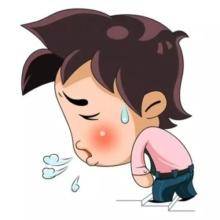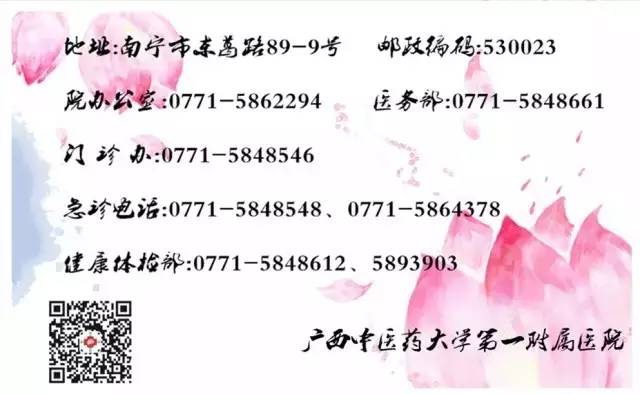
It is often heard in TCM diagnoses that someone has a deficiency of Qi, which is a manifestation of insufficient vital energy. So what are the symptoms of Qi deficiency, and how should one regulate it?
The “Huangdi Neijing: Suwen” states, “When the righteous Qi is stored within, evil cannot invade; where evil gathers, Qi must be deficient.” This means that individuals with sufficient Qi are more capable of resisting various pathogens, while those with insufficient Qi will exhibit various symptoms, which is the essence of Qi deficiency constitution.

Symptoms of Qi Deficiency:
Qi deficiency is a term in TCM that primarily indicates a decline in bodily functions due to the loss of Yin and Yang Qi and essence. To maintain health, it is essential to keep all organs and Qi in a balanced state. When Qi deficiency occurs, the body will exhibit symptoms that differ from the norm, serving as a warning. The specific symptoms of Qi deficiency include:
1. Weakness in the lower back and knees;
2. Dizziness and blurred vision;
3. Weak pulse;
4. Cold extremities;
5. Irritability;
6. Poor complexion and fatigue;
7. Decreased resistance to diseases, making one prone to illness.
What Should Qi Deficiency Patients Eat?
For individuals with Qi deficiency, dietary considerations should also take into account the principles of the five organs’ deficiencies. Those with Qi deficiency should consume foods that have Qi-tonifying properties, are neutral in nature, and have a sweet or mildly warm flavor. They should eat nutrient-rich, easily digestible foods. Avoid foods that deplete Qi, as well as raw, cold, greasy, and spicy foods.
1. **Jing Rice (Jing Mi)**
Neutral in nature and sweet in flavor, it can tonify the middle and benefit Qi. It has been recorded in the “Bielu” as a Qi-enhancing food. The Tang dynasty food physician Meng Shen also stated: “Jing rice warms the middle and benefits Qi.” The Qing dynasty’s Wang Mengying praised Jing rice porridge as the ‘ginseng soup for the poor,’ stating that the poor suffering from deficiency should use thick rice soup instead of ginseng soup. Therefore, those with Qi deficiency should consume it regularly.
2. **Beef (Niu Rou)**
Neutral in nature and sweet in flavor, it benefits Qi and blood, strengthens the spleen and stomach, and fortifies bones. The famous physician in the “Bielu” stated: “Beef calms the center and benefits Qi, nourishing the spleen and stomach.” The “Han Shi Yi Tong” also mentions: “Yellow beef supplements Qi, working similarly to Astragalus (Huang Qi).” This shows the Qi-boosting power of beef, making it suitable for those with Qi deficiency.
3. **Chinese Yam (Shan Yao)**
It is a Qi-tonifying food, particularly beneficial for those with Qi deficiency constitution or chronic Qi deficiency. Chinese yam can tonify lung Qi, spleen Qi, and kidney Qi, and is commonly used in formulas for lung, kidney, or spleen Qi deficiency.
4. **Chicken (Ji Rou)**
Warm in nature and sweet in flavor, it has the effects of warming the center, benefiting Qi, tonifying essence, and nourishing blood. It is suitable for those with Qi deficiency, blood deficiency, or kidney deficiency. There is a common practice of stewing old hens with Astragalus for those with Qi deficiency, which enhances the Qi-boosting effect.
5. **Eel (Shan Yu)**
Warm in nature and sweet in flavor, it has the effects of replenishing deficiencies, benefiting Qi, and strengthening bones. Those with Qi deficiency should consume it regularly. The “Qian Jin: Food Therapy” states that it is effective for those with low Qi who cannot stand. The “Ben Cao Yan Yi Bu Yi” also states: “Yellow eel is good for tonifying Qi.”
6. **Jujube (Da Zao)**
Warm in nature and sweet in flavor, it is a common food that benefits Qi and nourishes blood. It has been used by physicians throughout history for patients with Qi deficiency. The “Bielu” states that it tonifies the middle and benefits Qi, strengthening the body. The Tang dynasty food physician Meng Shen also stated: “Jujube supplements insufficient Qi, and when cooked, it nourishes the intestines and stomach, being the best for benefiting Qi.” Therefore, those with Qi deficiency should consume jujubes cooked until soft.
In addition, those with Qi deficiency should also consume glutinous rice, millet, corn, barley, sweet potatoes, pumpkins, white kidney beans, soybeans, beef tripe, black-boned chicken, goose, rabbit, quail, green fish, squid, octopus, cooked water chestnuts, pine nuts, carrots, tofu, soy milk, potatoes, mushrooms, straw mushrooms, and royal jelly.
Qi Deficiency Patients Should Exercise More
Many individuals experience Qi deficiency primarily due to insufficient daily exercise. Therefore, to change this Qi deficiency constitution, it is essential to strengthen exercise. Exercise can effectively invigorate the body, improving physical condition and enhancing mood.
Exercise helps Qi and blood circulate throughout the body, ensuring that all parts are nourished and energized, which further aids in the generation of Qi.
Individuals with Qi deficiency tend to have lower physical capacity, so exercise should be moderate and gradually increased. Excessive exercise can lead to fatigue, sweating, and even coughing or dizziness. Gentle exercises such as jogging, walking, Tai Chi, and Qigong are more suitable for those with Qi deficiency. These traditional forms of exercise can strengthen kidney Qi and fortify bones, gradually improving physical condition.
During exercise, it is advisable to adopt a low-intensity, high-frequency approach, controlling the duration of each session to avoid excessive fatigue. Focus on flexibility training for the limbs, such as stretching and leg presses, and pay attention to deep and even breathing, avoiding strenuous or prolonged breath-holding actions.
Patients with Qi deficiency should pay attention to both diet and exercise, gradually enhancing their physical condition and alleviating the troubles caused by Qi deficiency.
(Source: Family Doctor Online)

↓↓↓ Click “Read Original” 【View Original Source】

